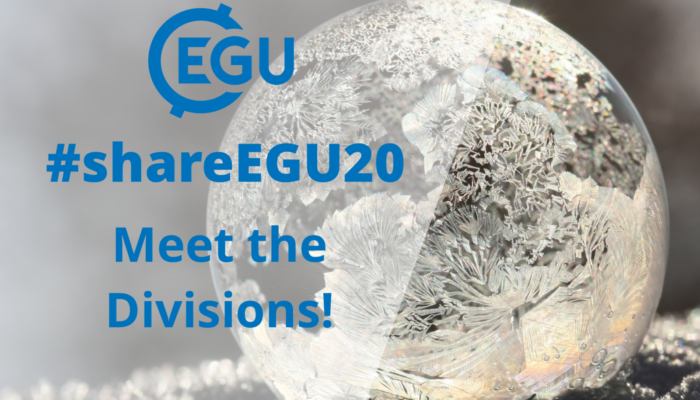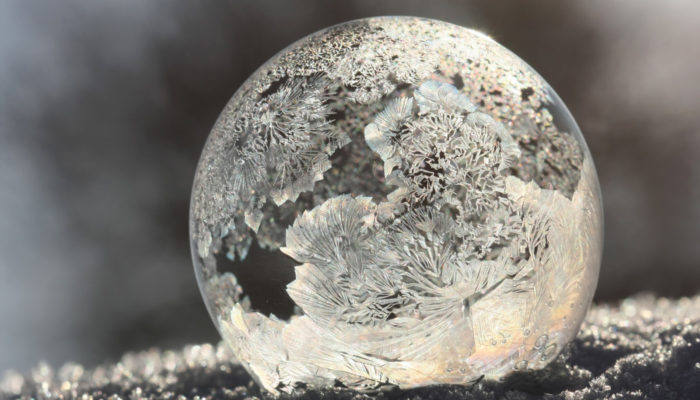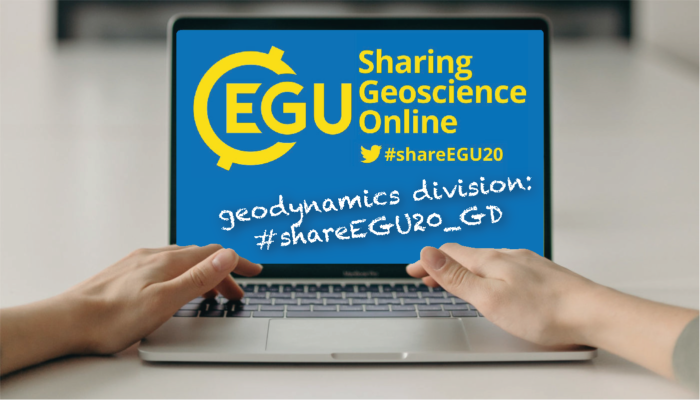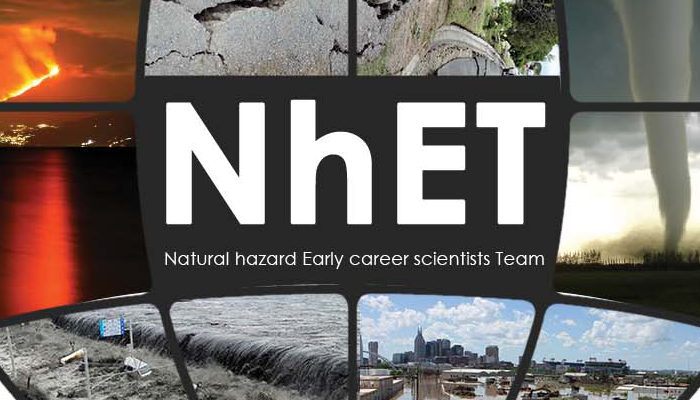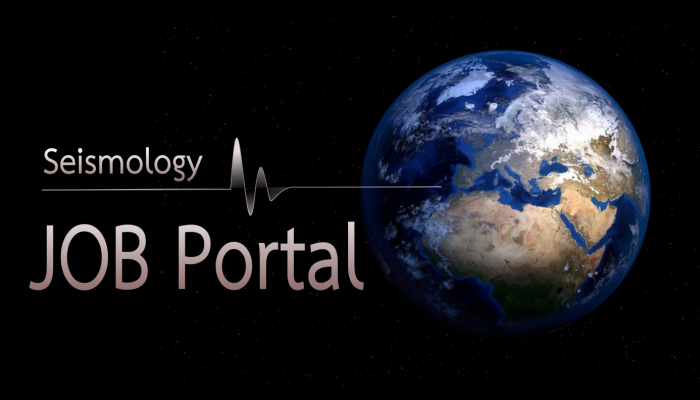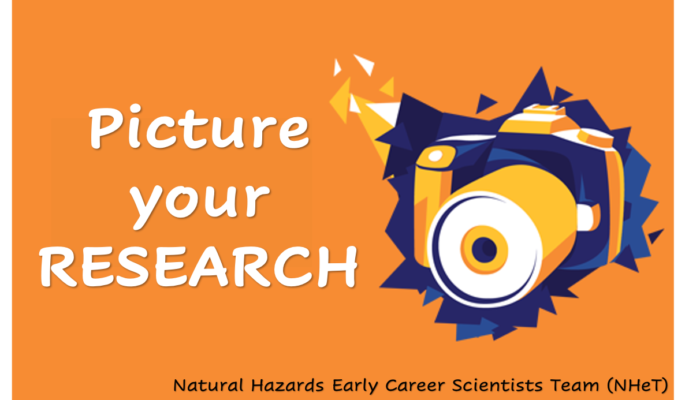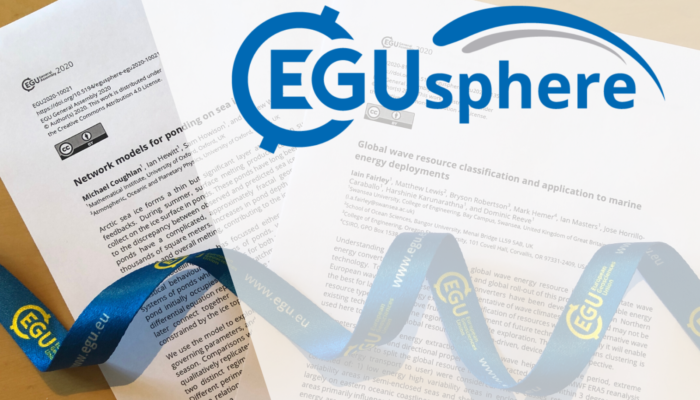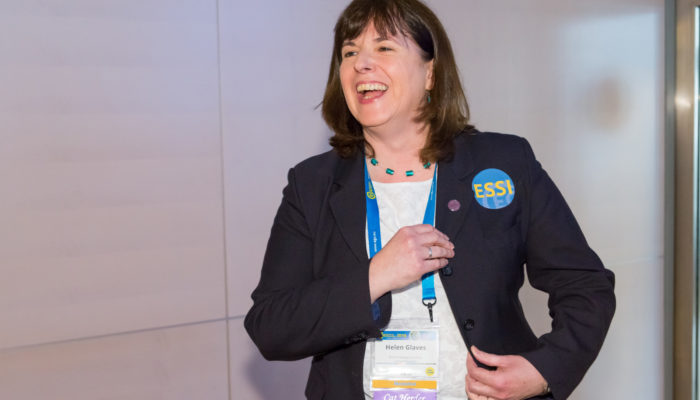From Monday to Thursday during the week of #shareEGU20, the Early Career Scientists in our various Divisions are going to host a series of evening networking events. Find out more by clicking on the ‘Networking’ session search in the EGU Programme. In addition to these events being run by some of our members, there are also several other Divisions you may encounter during the week whic ...[Read More]
If you didn't find what you was looking for try searching again.
Cryospheric Sciences
What to expect from shareEGU20? Tips and tricks from the Cryosphere perspective
Despite the current situation, the European Geosciences Union has decided not to give up on its most important event of the year: the EGU General Assembly. While they usually meet in Vienna every late April/early May, geoscientists will meet online this year! This event, called “shareEGU20” gives every interested geoscientist the opportunity to attend the EGU general assembly, free of charge and f ...[Read More]
Nonlinear Processes in Geosciences
NP Interviews: the 2020 Lewis Fry Richardson Medal Valerio Lucarini
Today’s NP Interviews hosts the 2020 Lewis Fry Richardson Medal Valerio Lucarini. Valerio (b. Ancona, Italy, 1976) is the Director of the Centre for the Mathematics of Planet Earth and Professor of Statistical Mechanics at the University of Reading, and former Professor of Theoretical Meteorology at the University of Hamburg. His main expertise is in Climate Dynamics, Extreme Events, Statist ...[Read More]
Geodynamics
#shareEGU20_GD: online EGU General Assembly highlights
In response to the growing concerns over the COVID-19 epidemic, EGU has cancelled the physical General Assembly in Vienna and will instead host EGU 2020: Sharing Geoscience Online (#shareEGU20), a week-long series of online activities during which attendees can remotely interact, discuss and share research. With the virtual GA looming in less than a week, it’s time for all attendees to finis ...[Read More]
Natural Hazards
EGU 2020: Sharing Geoscience Online, NhET activities
We are currently living uncertain times due to the COVID-19 pandemic, and we hope that you and your relatives are healthy and safe. As you may know by now, the physical EGU 2020 General Assembly was cancelled. To keep science in the front line, provide a discussion and sharing platform also at these times, it was replaced by the first interactive and digital EGU 2020: Sharing Geoscience Online ev ...[Read More]
Seismology
Seismology Job Portal
On this page, we regularly update open positions in Seismology for early career scientists. Do you have a job on offer? Contact us at ecs-sm@egu.eu Please, note that other available research positions are displayed on the EGU Jobs Portal.
Natural Hazards
Blog column – PICTURE YOUR RESEARCH!
Working on natural hazards brings you to places (physically and virtually) you might never have discovered otherwise. You look at the world while asking questions about places, situations, relationships, and interactions of the natural processes surrounding you, inspiring your scientific potential. The Natural hazard Early Career Scientists Team is interested in your natural hazard research and wo ...[Read More]
GeoLog
EGU President Alberto Montanari introduces the new EGUsphere
The European Geosciences Union (EGU) just announced the launch of EGUsphere, a new online platform designed to promote global networking and open discussion within the Earth, planetary and space science community. EGUsphere will serve as a central repository for all contributions, presentations and manuscripts presented to EGU. In particular, EGUsphere will host abstracts and presentations from th ...[Read More]
GeoLog
GeoTalk: Meet the EGU’s next president, Helen Glaves
GeoTalk interviews usually feature the work of early career researchers, but this month we deviate from the standard format to speak to Helen Glaves, the incoming president of the EGU. Helen has been involved with the Union for many years, also serving as Earth and Space Science Informatics Division President. Following a year as President-elect, Helen will become President at the 2021 General Ass ...[Read More]
Seismology
Seismology Job Portal
On this page, we regularly update open positions in Seismology for early career scientists. Do you have a job on offer? Contact us at ecs-sm@egu.eu Please, note that other available research positions are displayed on the EGU Jobs Portal.

